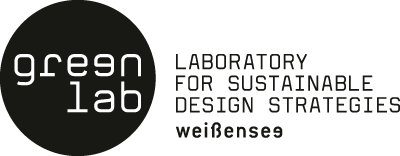

Dass der Mehlwurm Polystyrol frisst, wissen wir, seit ein kalifornisches Pärchen seine Würmer in einer Styroporbox aufbewahrte. Studien haben seitdem belegt, dass Wurm und Plastik eine perfekte Symbiose eingehen, in der der Wurm alle benötigten Nährstoffe aus dem geschäumten Kunststoff gewinnt und ihn dabei in eine biologisch verwertbare Masse verwandelt. Derselbe Wurm ist gleichzeitig eine hochwertige Proteinquelle, die schon heute regelmäßig auf dem Teller eines Drittels der Weltbevölkerung landet. Doch was entsteht in seinem Lebenszyklus noch, wenn die Larven wachsen, sich verpuppen, zu Käfern werden und schließlich sterben? Plasticula widmet sich diesen Überbleibseln, die größtenteils aus Chitin bestehen, und zeigt auf, wie sie sich in neue Materialien verwandeln lassen. Den Hintergrund bildet die Transformation eines an sich schädlichen Kunststoffs, der in neue nachhaltige Kreisläufe überführt und gleichzeitig aufgelöst wird.
We know that the mealworm eats polystyrene since a Californian couple kept their worms in a styrofoam box. Studies have since shown that worm and plastic form a perfect symbiosis in which the worm extracts all the necessary nutrients from the foamed plastic and transforms it into a biologically usable mass. The same worm is also a high-quality source of protein and already regularly ends up on the plates of a third of the world‘s population. But what else arises in its life cycle when the larvae grow, pupate, become beetles and eventually die? Plasticula is dedicated to these remnants, which consist mainly of chitin, and shows how they can be transformed into new materials. The background is the transformation of an inherently harmful plastic, which is transferred into new sustainable cycles and simultaneously dissolved.